Reform of the operation of the European Union is a regularly recurring topic in both European and domestic public discourse. Over the past year and a half, criticisms of Brussels' activities have mostly arisen in connection with the treatment of the coronavirus epidemic, and within that, the faulty EU vaccine procurement. It can also be observed that the Brussels elite is demanding more and more public affairs to intervene in the internal affairs of nation states. Századvég examined what Hungarians think about the functioning of the European Union and the preservation of member state sovereignty.
Based on the research, it can be stated that Hungarians imagine the country's future within the framework of the European Union. More than three-quarters (81 percent) of those polled would vote to remain in a referendum on EU membership , and only 14 percent would support our country's exit from the European community.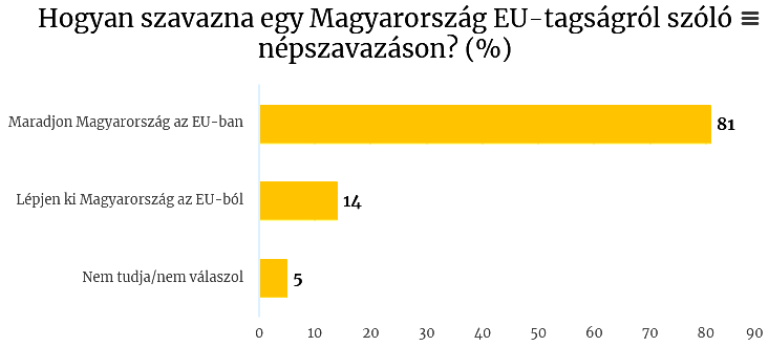
The assessment of the work of the Brussels bureaucracy, on the other hand, shows a different picture. The survey highlights that 76 percent of Hungarians consider the reform of the functioning of the European Union to be justified , so that the organization can carry out its activities more efficiently, quickly, and transparently, thereby promoting more successful cooperation among the EU member states.
The proportion of those who consider reforming the Brussels bureaucracy to be unnecessary can be put at 20 percent.
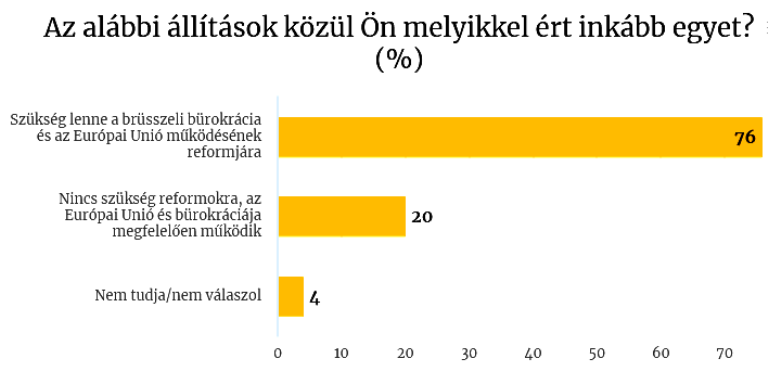
It can be concluded that Hungarians expect changes in several areas in connection with the activities of the European Union. More than three-quarters of the respondents believe that the operation of the EU should be simplified (85 percent), that if Brussels delays in a crisis situation, EU leaders should also take responsibility (84 percent), and that - by eliminating double standards between member states - it would be justified to make the activities of the European community (79 percent). 72 percent of the respondents would reduce the bureaucracy in Brussels, both in terms of the resources devoted to it and its number of employees.
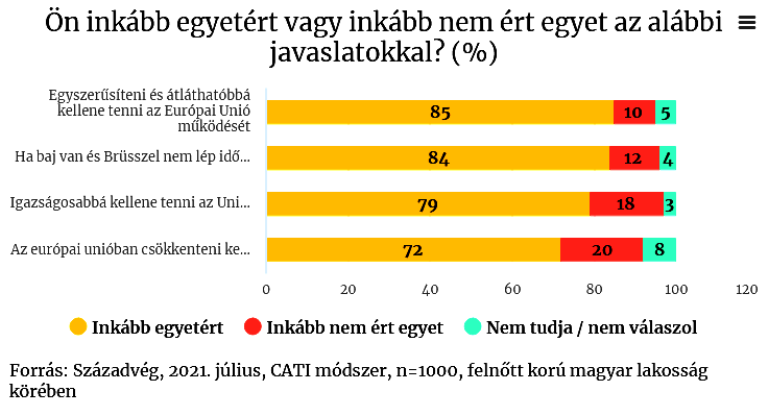
In light of all this, it is less surprising that every second Hungarian (52 percent) feels that their interests and opinions are not represented in Brussels.
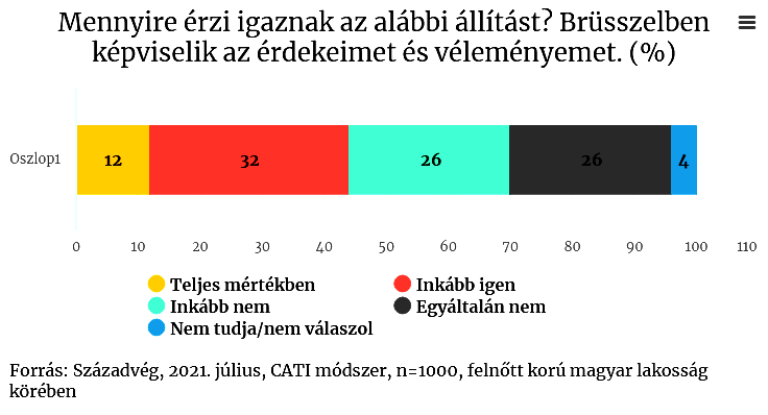
Especially since the outbreak of the migration crisis in 2015, the preservation of the continent's Christian culture and traditions has been the subject of public debates. The research shows that 71 percent of Hungarian respondents consider it essential that Europe nurtures and maintains its Christian culture and traditions , while only 24 percent would encourage the continent to move towards a more secular culture.
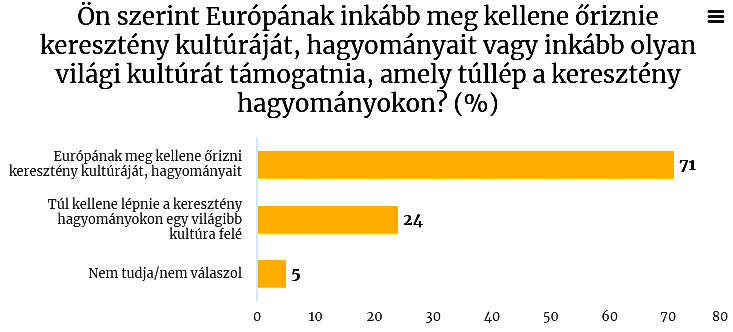
An unavoidable question regarding the future of the European Union is the relationship between the powers and decision-making rights of the Brussels bodies and the member states. According to the survey, three-quarters of Hungarians (75 percent) are of the opinion that the nation-states of Europe should be allowed to decide their own fate on the most decisive issues , while 22 percent would support Brussels having more power over the member states.
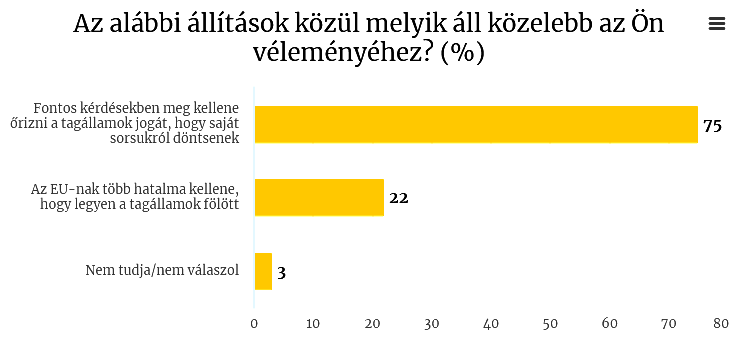
In this context, 74 percent of the respondents would like to see the current level of European integration or looser cooperation with regard to the most important political and economic issues, while maintaining national independence. The proportion of those who think that achieving a higher degree of integration at the expense of national sovereignty is justified can be put at 22 percent.
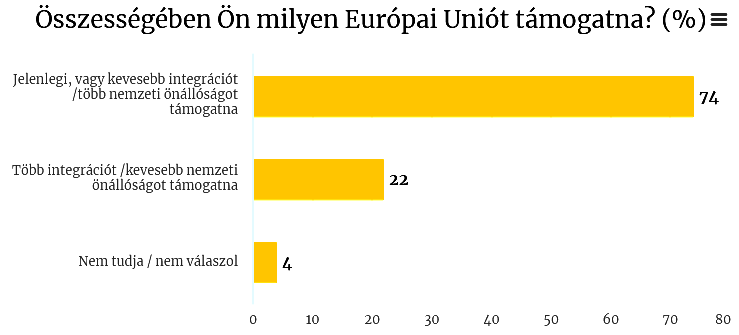
Hungary's stance on national sovereignty can be traced back to a strong sense of national identity. Based on the research, it can be concluded that 83 percent of the respondents consider themselves primarily Hungarian, and 15 percent consider themselves more European.
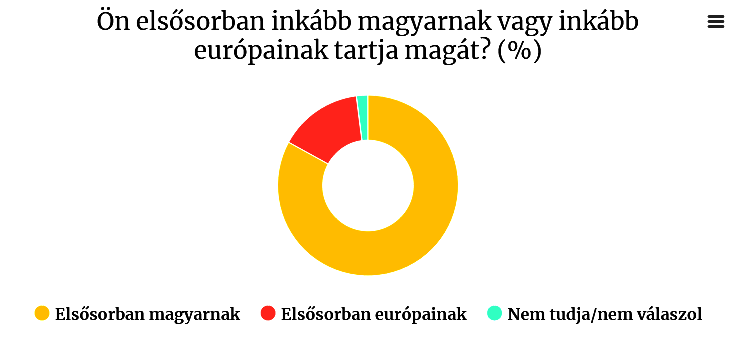
Another interesting fact is that more than three-quarters (84 percent) of Hungarians are against allowing businessmen with significant business and political influence - through NGOs and lobby organizations - to have a say in the internal affairs of EU member states.
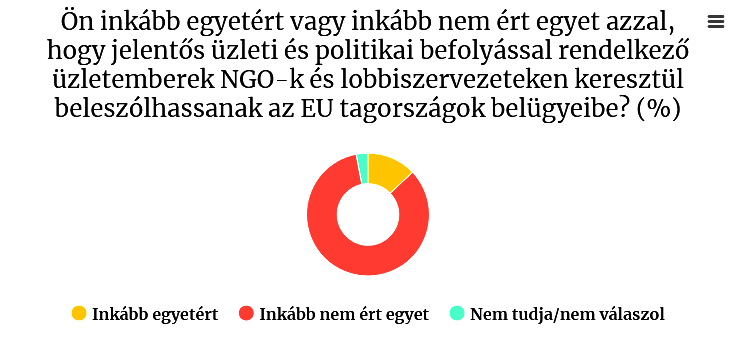
At the end of 2020, the Brussels elite suggested that, despite the spread of the coronavirus epidemic, it would tie the disbursement of EU funds rightfully to the member states to the fulfillment of political conditions disguised as the rule of law. In its June resolution, the European Parliament urged the Commission to "quickly respond to the serious violations of the principles of the rule of law in some Member States", using all the tools at its disposal - including the procedure in Article 7 of the EU Treaty, the "rule of law conditionality" and breach of obligations procedures - by deploying them. At the same time, it can be stated that more than two-thirds (69 percent) of Hungarian respondents consider it unacceptable for Brussels to take the resources that belong to Hungary during the recovery from the epidemic.
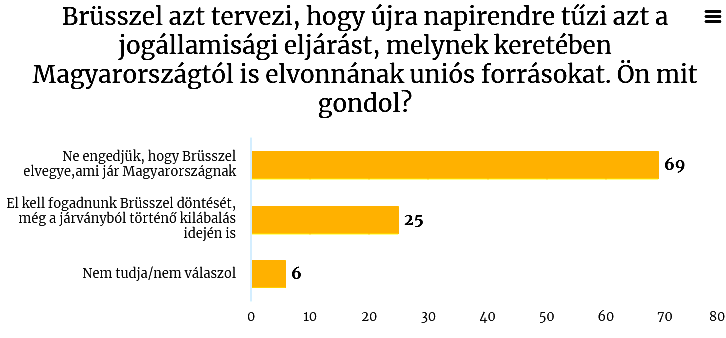
According to the survey, 63 percent of Hungarians believe that a double standard applies to Hungary , while 33 percent of them feel that the cases of all countries are judged equally by the bodies in Brussels.
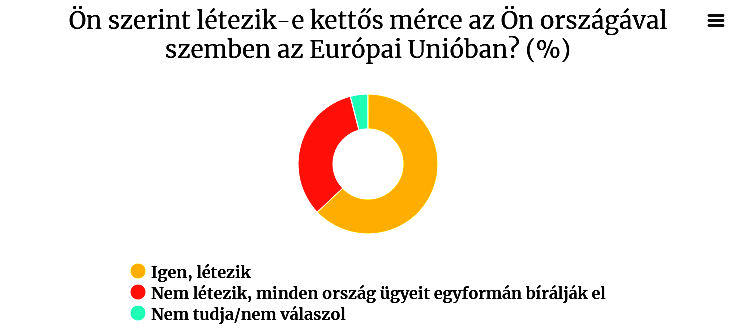
Source: End of the century
(Cover image source: vasarnap.hu)












